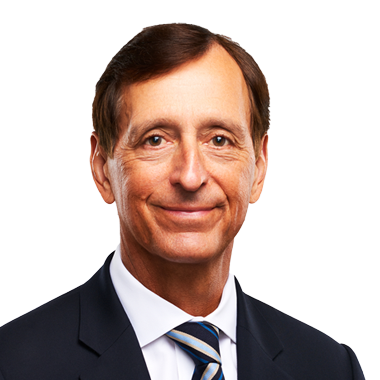Performance as at 2/27/2026
All returns and fund details are a) based on Series F shares; b) net of fees; c) annualized if period is greater than one year; d) as at 1/30/2026. Where applicable, all figures are annualized and based on monthly returns since inception. Risk-free rate and minimum acceptable rate calculated using rolling 90-day CDN T-bill rate. The rate of return or mathematical table shown is used only to illustrate the effects of the compound growth rate and is not intended to reflect future values of the mutual fund or returns on investment in the mutual fund. Top ten holdings, sector allocation and geographic allocation as at 1/30/2026. Top ten holdings based on % of net asset value. Sector allocation based on % of net asset value. Geographic allocation based on % of net asset value and excludes cash. Numbers may not add up due to rounding. Cash and cash equivalents include non-portfolio assets and/or liabilities.
The rate of return is used only to illustrate the effects of the compound growth rate and is not intended to reflect future values of the investment fund or returns on investment in the investment fund.
The monthly distribution amount may be adjusted by the Manager without notice throughout the year as market conditions change. Monthly distributions will be comprised of net income, net realized capital gains and/or return of capital. Any net income and/or net realized capital gains earned by the Fund in excess of the monthly distribution will be distributed to unitholders annually in December.
The Fund is generally exposed to the following risks: Active management risk; Borrowing risk; Capital depletion risk (Series T, Series FT, Series PT, Series PFT, Series QT, and Series QFT units only); Credit risk; Currency risk; Cybersecurity risk; Derivatives risk; Exchange traded funds risk; Foreign investment risk; Inflation risk; Interest rate risk; Liquidity risk; Market risk; Regulatory risk; Securities lending, repurchase and reverse repurchase transactions risk; Series risk; Short selling risk; Specific issuer risk; Tax risk; Absence of an active market for ETF Series risk; Halted trading of ETF Series risk; Trading price of ETF Series risk.
Ninepoint Partners LP is the investment manager to a number of funds (collectively, the “Funds”). Commissions, trailing commissions, management fees, performance fees (if any), and other expenses all may be associated with investing in the Funds. Please read the prospectus carefully before investing. The indicated rates of return for series F units of the Funds for the period ended 1/30/2026 are based on the historical annual compounded total returns including changes in unit value and reinvestment of all distributions or dividends and do not take into account sales, redemption, distribution or optional charges or income taxes payable by any securityholder that would have reduced returns. Mutual funds are not guaranteed, their values change frequently and past performance may not be repeated. This communication does not constitute an offer to sell or solicitation to purchase securities of the Funds.
The information contained herein does not constitute an offer or solicitation by anyone in the United States or in any other jurisdiction in which such an offer or solicitation is not authorized or to any person to whom it is unlawful to make such an offer or solicitation. Prospective investors who are not a resident in Canada should contact their financial advisor to determine whether securities of the Fund may be lawfully sold in their jurisdiction.
© 2024 Morningstar Research Inc. All rights reserved. The information contained herein: (1) is proprietary to Morningstar and/or its content providers; (2) may not be copied or distributed; (3) and is not warranted to be accurate, complete, or timely. Neither Morningstar nor its content providers are responsible for any damages or losses arising from any use of this information. Past performance is no guarantee of future results.
Morningstar Ranking/Number of Funds in Category displays the Fund’s actual rank within its Morningstar Category based on average annual total return and number of funds in that Category. The ranking is subject to change every month.
The Morningstar Risk Adjusted Return (MRARs), commonly referred to as the Star Rating, relate the risk-adjusted performance of a fund to its peers with the same CIFSC Fund category for the period ended as noted and are subject to change monthly. Morningstar calculates ratings for categories with at least 5 funds. To determine a fund’s rating, the fund and its peer are ranked by their MRARs. If a fund scores in the top 10% of its category, it receives five stars (High); if it falls in the next 22.5% , it receives four stars (Above Average); the next 35% earns a fund three stars(Neutral or Average); those in the next 22.5% received two stars (Below Average); and the lowest 10% received one star (Low). The overall rating is a weighted combination of the 3, 5 and 10 year ratings. For greater detail, see morningstar.ca.
Ninepoint Partners LP: Toll Free: 1.866.299.9906. Dealer Services: CIBC Mellon GSSC Record Keeping Services: Toll Free: 1.877.358.0540

 May 30, 2025
May 30, 2025



